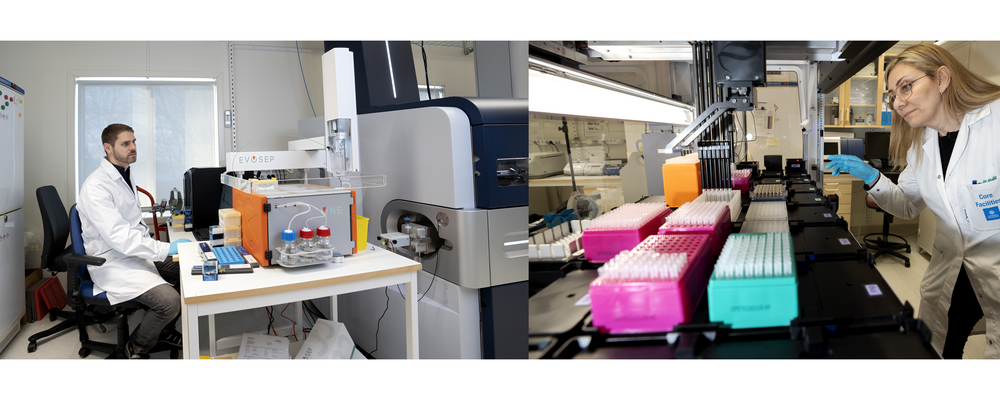Pioneering the Paradigm Shift
Precision medicine forms a paradigm shift in research and there is a need to include multi-omics to push the development.
Discover how precision medicine is transforming research norms, introducing measurable biomarkers to support clinical decisions. SciLifeLab, in collaboration with academia, healthcare, and industry leaders, recognizes the imperative role of multi-omics in diagnostics and the advancement of precision medicine. Systems-level proteome analysis, and disease-associated protein variants, are a large unused information-rich level of clinical biomarkers. Improved chromatography and especially mass spectrometry (MS) with high throughput analysis, and new sensitive ion mobility TOF instruments have opened up completely new opportunities to develop MS analysis for clinical research. MS analysis offers proteome-wide analysis or rapid development of assays for protein variants and post-translationally modified proteins, not possible to scale up on any other analytical platform.
A National Endeavor: Clinical MS Facility across Lund, Stockholm, and Gothenburg
Powered by the Swedish Research Council
Uncover the national MS infrastructure instruments strategically placed across three nodes: Lund, Stockholm, and Gothenburg. Six mirrored state-of-the-art instruments with connected rapid liquid-chromatography systems and liquid handlers for automated sample preparation have been installed.
Driving Standardization and Innovation
The new proposed SciLifeLab facility aims to lead the clinical MS research and implementation by dedicated development on standardization, methods on prospective analysis, and related knowledge to define clinically meaningful biomarker readouts. A nationally synchronized consortium in clinical MS will make population-based investigations of massive clinical biobank sample collections possible and provide services and tools to institutions and networks.
Explore how SciLifeLab's clinical genomics, tissue imaging, and single-cell omics efforts provide an ideal setting for a dedicated clinical MS facility. MS analysis can directly use sample-specific genomics and transcriptomics data by forming proteogenomics search databases to provide individual proteome information also considering sequence variants.
Charting the Path to Precision Health Research
Moreover, the MS facility has a unique opportunity to develop a population-scale antibody-based HTP assay based on accurate MS data to develop precision health research and to provide molecular phenotype levels to connect genotype and histopathological imaging data on large cohorts.
Contact: Carina Sihlbom Wallem, Proteomics Core Facility
